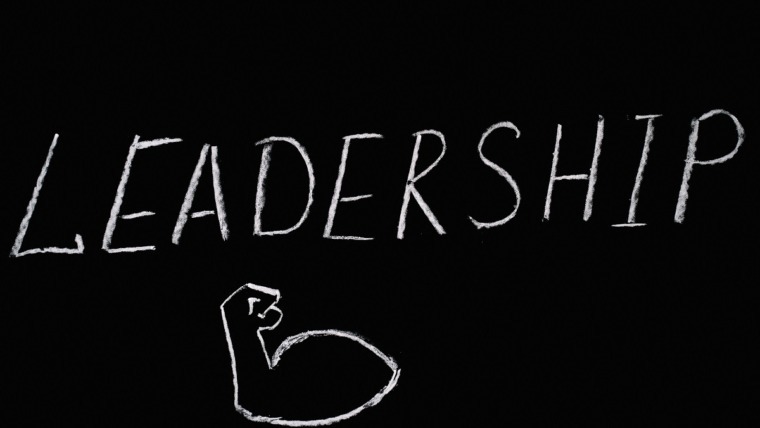
Written by Sally McGrath Practice Director Health that Heals
Leadership and management, is a role that has multiple responsibilities and ultimately the voice for the people represented in the relevant area of business, education or community and charged with the task of receiving and delivering news that is both pleasant and un-pleasant. The leadership in a community environment will tap into all the leadership qualities as the role will no doubt cover matters that provoke debate. It is important to note that in a community, it is possible that there is a higher level of emotion attached to matters that arise as there will be a range of representatives from residential, commercial and not for profit sectors.
Clear and precise communication, combined with objectivity, humility and compassion are essential ingredients to successfully lead by example, whether your team is a group of employees, your child's sporting team or your community; there are ways that you can plan and manage the sharing of the good and the not-so-good news.
Planning and preparation is essential to all leadership roles to develop and nurture respect from your constituents, in particular in a community where it is likely there will be a diverse combination of people of all ages and stages of life, as well as a range of races, religions, beliefs and opinions. A safe and respectful environment is essential to provide the opportunity for the range of options to be heard and considered, after all the leader of the community is there as a representative for the people.
Based around experiences in a range of management positions, here are some suggestions to lead your community and create harmony to build relationships that lead to progression and build trust in your constituents.
1. What you say is Critical
Preparation for what you are going to say is the biggest and most important step to be able to build trust and connection with your community. This is a valuable suggestion for leaders and for the members of your community. You will need to prepare for every possible outcome; you do not know how others will interpret your information and it is essential your reaction is professional.
Avoid Jokes and Humour
The reason you are leading is to ensure all community members are respected. As mentioned above there is a high possibility that there will be diversity amongst the audience you are communicating to. Jokes can be received as rude and humour is interpreted differently for all, be sensitive and intuitive to the people to whom you are communicating to.
Listen to the People
Provide and allow the community members to speak and be heard. A respected leader listens to the people and appreciates that their leadership is to improve the betterment for all. Ensure that the people feel heard, listened to and are not cut off.
Get to the Point
The capacity to hold an audience attention is limited even with the most engaging speaker. Make sure your delivery is clear and concise and gets to the point, be direct and keep to the time frame applied.
Make the Effort to Accommodate
In the case that there is not-so-good news to be delivered, deliver the news and ensure you put a positive message in as well to offer some hope and that there is a plan to accommodate and facilitate being heard. Be supportive of the opinions expressed by the community, especially to the not-so-good news, this can be the factor that determines a great leader from an average leader.
A great leader does not always win
They always bring out the best in others
Simon Sinek
Leading by Example
In the health profession it is vital to lead by example. A key principle to lead for the betterment of others is to ask yourself; “Would I do what I am asking someone else to do?” If there is a hint of doubt in the answer then it is essential to reconsider and reframe your request. To lead by example can be covered by the following points:
1. Encourage your Community to Speak and Engage
No one is exempt from getting discouraged. The word "courage" comes from the Latin root "cor," meaning "heart." The word discouraged means disheartened. The role of leaders is to keep encouraging and moving forward. Encouraging the community by using and giving focus to positive words and words that embrace, to encourage a team, start by focusing on the words used because words are powerful things. Empower the community by allowing them to be heard respectfully.
2. Challenge Them
One of the best methods to demonstrate a leader is open to hear from the community is to challenge the members to improve their health, lifestyle and relationships. This does show care and an openness to debate and discuss any subject, it also provides the people with a subliminal message that they are capable of more and can improve. The style of communication here needs to be carefully managed and delivered by experienced leaders with intuitive communication skills. Challenging people is important as it is when people are challenged that the best characteristics come forward, as discomfort is felt and no person wants to feel discomfort, so they reach for more and a new place of improved health and wellbeing, the benefits and pay offs are demonstrative of the effort created by the challenge.
3. Serve Them
In light of the year that 2020 has been with health being a major priority for the global population, leadership has been one of the most challenging roles in an environment that has been consistently and rapidly changing. People are concerned about multiple parts of their lives; health, financial health and their future. Two ways that a great leader can demonstrate willingness to support people in a community are; directly and indirectly
Directly: Helping a person improve by supporting them or giving resources.
Indirectly: Supporting and advocating for people when they are not present.
Leading into the Future
Our lives as we know them have been interrupted and challenged more than any other time; therefore leadership now needs to be conducted with more empathy than ever before. It is time, to lead our communities, our businesses and our lives with more compassion, appreciation, respect and empathy. Asking some simple questions to your community helps to build valuable relationships and strengthen community ties for all residents. The simplicity of a conversation beginning with “How are you?” is all it could take to create a meaningful conversation and connection, by leaders to show their communities the importance of “Leading by example”.
Leadership is an Action; Not a Position
Donald McGannon
Community Leadership Community Leadership Community Leadership



